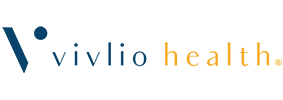New Trends in the Healthcare Industry: 5 SaaS Solutions & Their Benefits
SaaS — also known as “Software as a Service” — is currently shaping the medical field and transitioning many outdated practices to more cost-effective and easier solutions, all whilst providing crucial services to staff and patients. Its evolution has been remarkable, making it one of 2024’s most aspiring trends in the healthcare industry.
The future of healthcare is defined by technology, a digital revolution pushing for a shift in the industry. But while technology is now providing advanced options, digital healthcare applications, and invaluable solutions, some of us haven’t caught up yet.
Staffing shortages and extreme circumstances triggered by the COVID-19 pandemic have made it hard for healthcare organizations to catch up to the current state of progress. And while clinicians have certainly had their hands full, the need for technology has never been more dire.
The urgency to adopt SaaS has significantly increased as digital solutions have transformed our everyday norms. SaaS provides many benefits, allowing healthcare organizations to thrive — even under pressure.
What is a SaaS-Based Solution or Application?
SaaS solutions can be accessed digitally — on your computer, your mobile device, through cloud-based platforms, as codes sent to your email inbox, or on a server. They provide a service or an application over the Internet that healthcare professionals can easily access and utilize.
For nurses, administrative staff, office managers, and clinicians, SaaS applications solve a pressing problem, save time, and increase efficiency.
Some examples of SaaS in healthcare include patient portals that aid in providing effective communication, enhance the patient experience, and strive to provide better health outcomes. Other SaaS software solutions help you e-prescribe medications, bill patients, manage your medical practice, and effectively analyze patient trends.
Benefits of SaaS
SaaS has emerged as a critical trend in the healthcare industry due to its ability to increase productivity and improve operations in a fast-paced environment. SaaS solutions have invaluable benefits in healthcare, helping organizations perform better financially, supporting their staff, and offering excellence in patient care deliverables.
Here are just some of the benefits SaaS-based solutions can provide for YOUR institution.
SaaS is Accessible From Anywhere
No matter where you are in the world, as long as you have a working internet connection and a PC or cell phone, you’ll be able to access your healthcare SaaS application. This isn’t just a significant benefit of SaaS but also makes it remarkably convenient. It further allows you to access what you need whenever and wherever.
Comes with Tremendous Growth Potential
Because many SaaS solutions are cloud-based, they can quickly adjust to any changes in your business’ volume and size. With a clear-cut path and countless potential to grow, you can focus your attention on the tasks in front of you.
Helps Back Up Patient Data
Another benefit of SaaS is the built-in and reliable security features, ensuring that your patient data is protected. At the same time, SaaS is highly accommodating, backing up clinical data and patient demographics continuously, so your data is always safe and a backup is available for emergencies.
SaaS is More Predictable & Cost-Effective
A healthcare SaaS offers your organization an opportunity to save on operational costs and staffing — and by automating processes, also saves you valuable time. Cloud-based SaaS applications don’t even require set-up costs and are more predictable as you can plan your budget more efficiently.
Provides High-Quality Patient Care & Results
As a defining component of the future of healthcare, SaaS applications aim to meet patient expectations — some of which have been profoundly shaped by our digital world. SaaS offers new opportunities in healthcare, allows for more active patient engagement, and can monitor patients in remote and rural areas, as well as at home.
Types of SaaS in Healthcare
As patient care is moving more and more into the digital realm, the future of healthcare is shaping up to become more technical. SaaS solutions take on a critical role in pushing the healthcare industry forward and creating a new landscape.
Various types of SaaS are dominating the industry and bear significant potential for the future of healthcare. Below we have summarized a few.
(1) Vertical SaaS
The benefit of so-called vertical SaaS is that they target specialty industries and can provide highly customized services applicable to the healthcare industry. They incorporate unique expertise and analytics to provide applications that can address very specific problems.
Horizontal SaaS are more vague and aim for more general targets, and can, therefore, cover an array of industries and sectors. However, their problem-solving ability is more limited.
(2) Pay-Per-Use Model & Subscriptions
Another type of SaaS is the subscription cloud-based model, allowing you to use a platform digitally for billing services, patient monitoring, or analysis purposes by paying a monthly fee.
However, as trends in healthcare often shift and organizations continue to seek minimal expenditures, the pay-per-use model is gaining traction. It allows smaller practices or bigger organizations with temporary needs to obtain short-term services without signing up for a regular monthly subscription.
(3) Artificial Intelligence (AI)
Artificial intelligence is steadily growing — across the board. In healthcare, AI facilitates the automation of tedious processes and aids in analyzing patient data and disease patterns. Intrigued? Read our article on the growing potential of AI in healthcare here.
(4) Multi-Cloud Strategy & Security
An impressive 70% of healthcare IT professionals state that their practice has actively implemented cloud computing solutions, while another 20% indicate a desire to adopt cloud computing within a two-year time frame.¹ It is thus safe to say that the future of healthcare is certainly digital.
Leveraging a multi-cloud strategy improves security, provides you with an array of data recovery options, and allows you to tap into a rewarding variety of innovative applications.
(5) Micro SaaS Instead of Reinventing the Wheel
The healthcare industry is a fluid landscape and it’s inevitable for your organization to change over time. But if you’re a smaller clinic, your financial resources are much more limited. Instead of replacing an entire software solution, micro SaaS can provide you with an add-on service that might be able to just expand on your current solution.
Micro SaaS makes for a growing trend in the healthcare industry as it requires minimal investments and provides very specific solutions.
Follow the Trend with an Electronic Healthcare Records Software
As a trend that is certainly staying in the healthcare industry, SaaS provides an array of benefits to healthcare professionals, administrators, and patients. Cloud-based SaaS solutions are of particular interest in healthcare, allowing for multiple users within organizations and providing you with location independence — and their popularity and potential are only growing.
The healthcare software industry is projected to grow tremendously in the coming years and is expected to increase by roughly $3.5 billion between 2023 and 2024, at a compound annual growth rate of 16.7%.²
You can start following this healthcare trend with electronic healthcare records software that can facilitate correspondence between clinical institutions, enhance the patient experience, and improve health outcomes for patients.
Vivlio Health® aims to bridge some of these healthcare gaps, so physicians can focus on the care they provide — instead of wasting valuable time on tracking down patient records that are nowhere to be found.
As an electronic healthcare records software, Vivlio Health uses a cloud-based system to access and retrieve much-needed medical records, so you can offer exceptional care that is rooted in a complete and reliable medical history for each patient. This ensures that you can avoid unnecessary delays and offer your patients prompt treatment.
Curious? Reach out to schedule a demo and let us answer your questions and help you better serve your patients.
References:
-
“70% of Healthcare Businesses Have Adopted Cloud Computing: DuploCloud Report.” GlobeNewswire, 22 February 2023, https://www.globenewswire.com/news-release/2023/02/22/2613339/0/en/70-of-Healthcare-Businesses-Have-Adopted-Cloud-Computing-DuploCloud-Report.html. Accessed 10 January 2024.
-
“Healthcare Software As A Service Market Size, Share, Trends, Revenue Forecast 2033.” The Business Research Company, https://www.thebusinessresearchcompany.com/report/healthcare-software-as-a-service-global-market-report. Accessed 10 January 2024.



